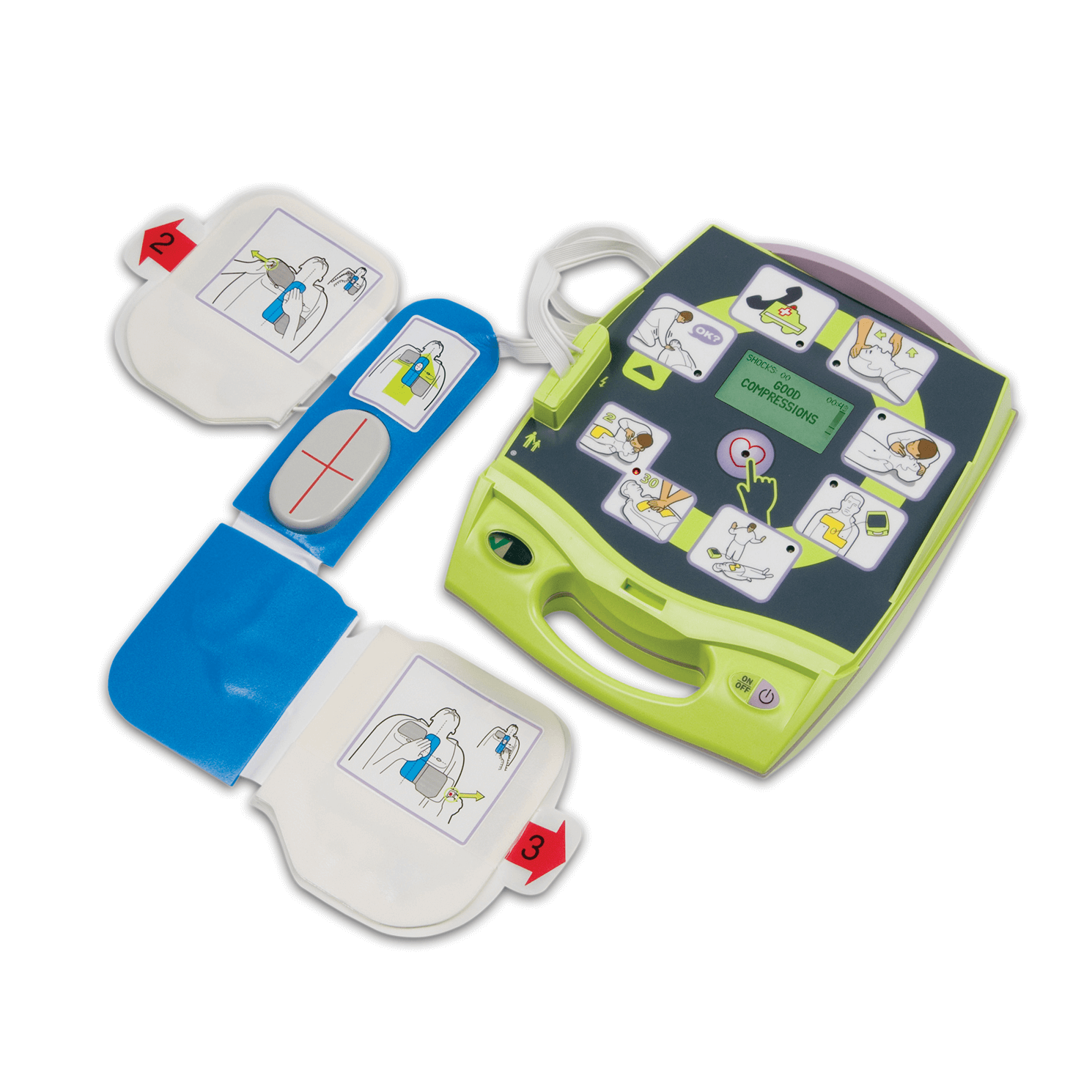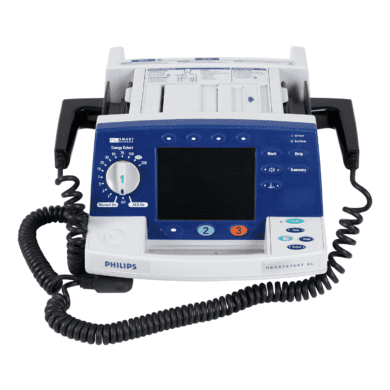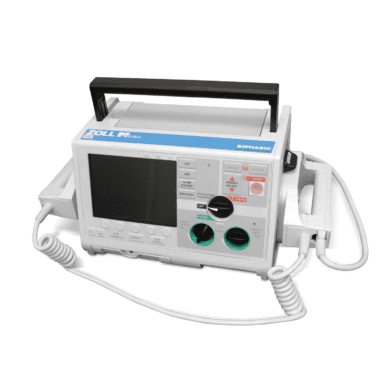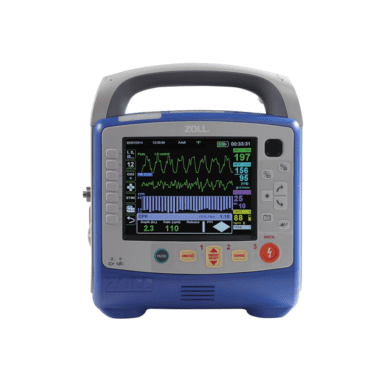Description
Zoll Monitors provide the essential feedback needed for optimal AED use.
A Complete Road Map for Resuscitation
The Zoll AED Plus gives even infrequent rescuers the confidence they need to help save lives. A picture is worth a thousand words. The AED Plus’ unique graphical interface – pictures combined with text displays and voice prompts—helps the rescuer every step of the way. Lights on the pictures draw the rescuer’s attention to actions in the proper sequence. Text and voice prompts correspond to the pictures and help the rescuer perform every important life-saving action. These pictures and prompts assure that everything is done in order and that shocks, if required, are delivered rapidly.
Early defibrillation. Early advanced care.
Every step helps save lives. Any break in the chain compromises survival. Ordinary AED Monitors only defibrillate. Rapid defibrillation is a critical intervention to improve survival, but it is not enough. While roughly half of unresponsive, collapsed victims need defibrillation, every one of them needs cardiopulmonary resuscitation (CPR). Following the Chain of Survival requires more than just attaching electrodes and delivering a shock. From checking responsiveness, summoning help, and doing an “ABC” assessment (Airway, Breathing, Circulation) to CPR and defibrillation, the ZOLL® AED Plus™ with instantaneous CPR Feedback helps guide the rescuer through the entire effort to rescue SCA victims.
New technology in ZOLL’s CPR-D padz includes a hand placement locator, an accelerometer, electronics, and a sophisticated processing algorithm. This system accurately measures CPR compression and converts the motion of the accelerometer over time into distance moved. The infrequent rescuer now has help providing CPR support for the victim.
One Electrode Size Fits All
A one-piece electrode design must account for anatomical variation in the patient population. The design of ZOLL’s CPR-D-padz is based on extensive human anthropometric data and studies designed to accommodate the wide range of patient sizes and shapes and to ensure that a one-piece electrode meets the needs of emergency AED use. The design developed for the CPRD padz meets the anthropometric characteristics of 99% of human chest anatomy. A special feature lets the rescuer separate the apex electrode to cover the other 1% of the population and other anatomical variations that require special adaptation.





Reviews
There are no reviews yet.